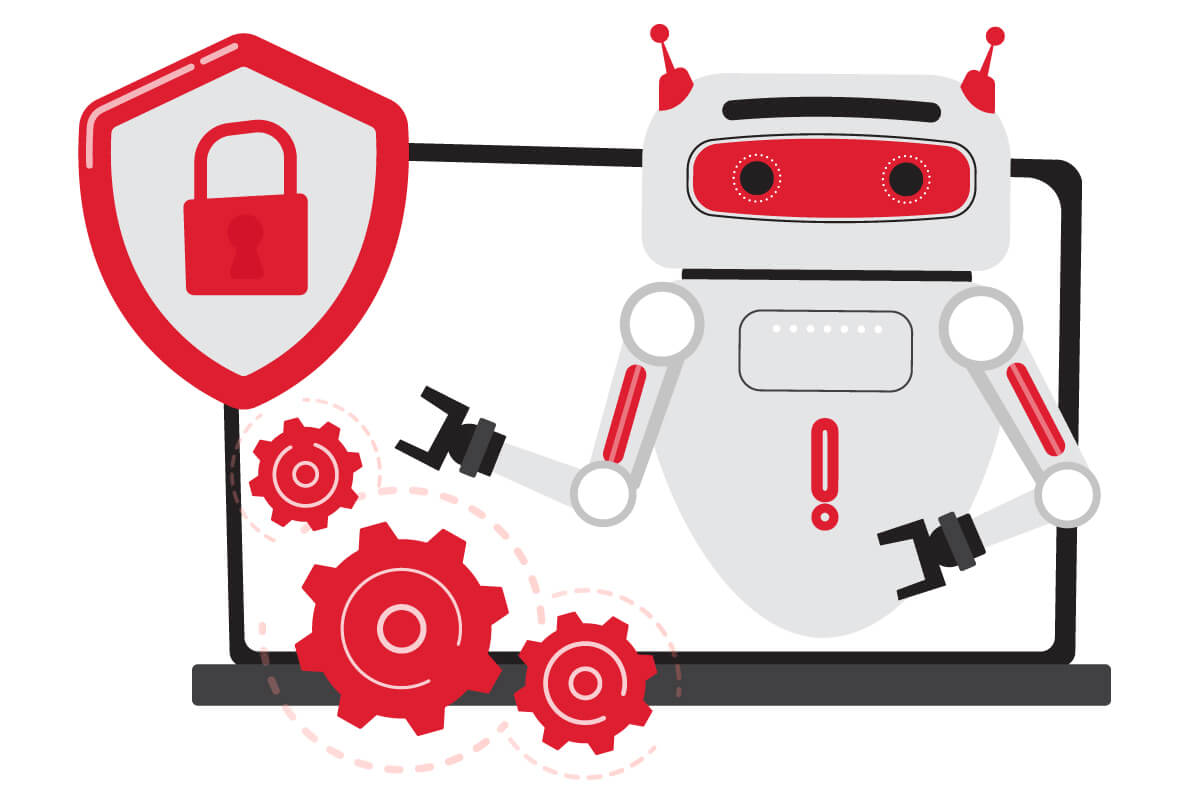Responsible AI: Building Trustworthy and Ethical Systems for the U.S. Economy

Introduction
Imagine applying for a job and getting rejected by an AI system that can’t explain why. Or your loan application getting denied by an algorithm that somehow decided you’re “high risk” based on data you can’t even see. Frustrating, right?
Here’s the weird thing – most of us trust AI to suggest what to watch on Netflix, but we get nervous when it’s making decisions about our careers or finances. And honestly, we should be nervous.
As AI gets more powerful and starts handling bigger decisions, getting it right isn’t just about avoiding bad headlines. It’s about America’s economic future and whether people will actually trust these systems enough to use them.
The Biden administration has been pretty clear about this with their AI Executive Order – responsible AI development isn’t optional anymore. Companies that figure out how to build trustworthy, fair AI systems aren’t just doing good – they’re getting a real competitive edge. Let’s break down what responsible AI actually means and why it’s surprisingly good for business.
What “Responsible AI” Really Means
Ethics in AI isn’t complicated philosophy – it’s about AI doing the right thing even when nobody’s watching. True transparency in AI goes beyond hidden processes and black-box models—it means being able to clearly trace and communicate how a decision was reached, in terms anyone can understand. It’s about accountability, not mystery. Likewise, fairness isn’t passive; it requires active design choices to ensure systems don’t perpetuate bias or disadvantage people based on identity or background. An ethical AI doesn’t just work well—it works justly. And accountability? That’s having an actual human who takes responsibility when AI screws up.
Here’s what goes wrong when we don’t get this right: Amazon’s hiring AI that discriminated against women. Facial recognition systems that couldn’t identify people with darker skin. Credit scoring algorithms that denied loans based on neighborhood rather than actual creditworthiness. These aren’t just PR nightmares – they’re expensive lawsuits waiting to happen.
But when it’s done right AI becomes a powerful tool that people actually trust. Banks using AI that can explain loan decisions build customer confidence. Companies with transparent AI systems see 58% of consumers believe the benefits of generative AI outweigh the risks when developed responsibly, and younger generations are more accepting when they see ethical commitments.
Custom software development with built-in ethical considerations prevents these problems from the start rather than trying to fix them later. The federal government is paying attention because they know that trustworthy AI systems are essential for America’s economic competitiveness. When people trust the technology, they’ll actually use it – and that’s where the real business value comes from.
Federal AI Priorities: What Washington Expects (And Why It Matters for Your Business)
Washington isn’t just making suggestions about AI anymore – they’re setting real expectations. And before you roll your eyes about more government red tape, here’s why this actually matters for your business.
Biden’s AI Executive Order Breakdown
The October 2023 AI Executive Order isn’t just political theater. It requires federal agencies to inventory their AI systems by December 2024 and creates real reporting requirements that trickle down to contractors and vendors. The NIST AI Risk Management Framework isn’t optional guidance anymore – it’s becoming the standard that everyone expects you to follow.
Private sector AI investment hit over $100 billion in the U.S. in 2024, compared to China’s $9.3 billion and the U.K.’s $4.5 billion. The government knows that staying competitive means getting AI right, not just getting it fast.
The Regulatory Landscape Coming
NIST released four draft publications in 2024 to improve AI safety and trustworthiness, with a 270-day timeline for federal agencies to implement new guidance. What starts with federal agencies doesn’t stay with federal agencies – these requirements flow down to anyone doing business with the government.
AI solutions providers who stay ahead of these requirements aren’t just avoiding compliance headaches – they’re positioning themselves as the safe choice for risk-conscious clients.
Why Compliance Isn’t Just About Following Rules
Companies that embrace responsible AI practices early aren’t just checking boxes. They’re building trust with customers who are increasingly asking tough questions about how AI systems work. When your competitor gets hit with a bias scandal or regulatory fine, you want to be the company that customers trust to do it right.
The Big Three: Ethics, Transparency, and Bias Prevention in Action
Here’s where the rubber meets the road. Let’s talk about what ethics, transparency, and bias prevention actually look like when you’re building and using AI systems.
1. Ethics in Practice
AI ethics isn’t about philosophical debates – it’s about real decisions that affect real people. With the FDA clearing 882 AI-powered medical devices by May 2024, these tools are now deeply embedded in patient care. But their real value isn’t just in speed or automation—it’s in how ethically they’re designed and used. When AI is built with transparency, accountability, and bias mitigation, it can help detect tumors earlier and improve outcomes. If not, it risks overlooking critical signs, especially in underrepresented populations. In medicine, ethical AI isn’t just ideal—it’s a matter of life and death.
When your marketing AI decides who sees job ads or loan offers, you’re making ethical choices about opportunity and fairness. Companies are learning that ethical AI in customer service, marketing, and operations isn’t just nice to have – it’s essential for avoiding costly discrimination lawsuits and building long-term customer trust.
Web development and digital marketing solutions that prioritize user privacy and ethical data use are becoming competitive advantages, not just compliance requirements.
2. Transparency That Actually Works
The explainable AI market is exploding – growing from USD 371.71 billion in 2025 to USD 2,407.02 billion by 2032. Imagine being denied a service by an AI system, and no one can tell you why. That kind of mystery doesn’t just frustrate people—it erodes trust. Businesses are realizing that when AI works like a secret code, it damages relationships instead of strengthening them. Black box models might seem smart on the surface, but they create confusion, fear, and resistance. Real progress comes from AI that’s not just intelligent, but understandable.
Think about loan approvals. When someone gets denied, they don’t want to hear “the algorithm said no.” They want to understand whether it was their credit score, income, or debt-to-income ratio that caused the rejection. That’s not just good customer service – it’s often legally required under fair lending laws.
Transparency isn’t just a technical detail; it’s a promise of honesty that strengthens loyalty and fosters long-term relationships. When a company uses AI behind closed doors, it breeds suspicion. But when businesses are open about how decisions are made—like why a loan was approved or a diagnosis suggested—people feel respected, not reduced to a data point.
3. Bias Prevention: More Than Just Good Intentions
Here’s where things get tricky. AI bias doesn’t come from evil programmers – it comes from biased data, flawed algorithms, and human blind spots. With 76% of FDA-approved AI medical devices in radiology, even small biases can have huge impacts when they’re scaled across millions of patients.
Testing for bias isn’t a one-time thing. You need regular audits, diverse teams reviewing your data, and systems that can flag potential problems before they become scandals. The companies getting this right are using mobile app development with inclusive design principles and bias testing built into every stage of development.
The key is prevention, not correction. Building fairness into your AI systems from day one is way cheaper than fixing bias after it’s already caused problems.
Building Trust with Customers and Employees
Trust is everything when it comes to AI adoption, but here’s the challenge – people are naturally skeptical of things they don’t understand. The good news is companies that handle this well aren’t just avoiding problems, they’re building stronger relationships.
The key is honest communication about what your AI can and can’t do. Don’t oversell it as magic, and don’t pretend it’s perfect. When Netflix recommends a terrible movie, people shrug it off. The stakes are different, so your approach needs to be different too.
Employee training makes a huge difference. When your team understands how AI works and why you’re using it, they become your best advocates instead of your biggest skeptics. They can answer customer questions confidently and spot potential problems before they escalate.
Customer education is just as important. People aren’t afraid of AI itself – they’re afraid of not knowing how it affects them. Clear privacy policies, easy opt-out options, and simple explanations of how AI improves their experience go a long way.
When AI does mess up (and it will), how you handle it matters more than the mistake itself. Take responsibility, explain what went wrong, fix it quickly, and show what you’re doing to prevent it from happening again. Website maintenance and support services that include regular AI audits and updates help you catch problems before customers do.
Companies like Patagonia and Salesforce have built customer loyalty by being transparent about their AI use and ethical commitments. They don’t hide behind technical jargon – they explain their values and stick to them, even when it’s inconvenient.
Practical Steps for Implementing Responsible AI
Enough theory – let’s talk about what you can actually do starting Monday morning.
1. Getting Started: Assessment and Planning
First, figure out what AI you’re already using. Most companies are surprised to discover they’re using AI in their email filters, customer service platforms, and marketing tools without even thinking about it. Make a list, then ask the tough questions: Where could bias creep in? What decisions are being made automatically? Who’s responsible when something goes wrong?
2. Implementation Best Practices
Start with your highest-impact, lowest-risk applications. Maybe that’s using AI to schedule meetings or sort customer inquiries, not making hiring decisions or approving loans. Build your confidence and learn the ropes before tackling the heavy stuff.
The biggest mistake companies make is treating ethics as an afterthought. “Let’s build the AI first, then make it responsible later.” That’s like building a house and then trying to add the foundation. Companies like Inteloraa integrate responsible AI principles from day one of custom development projects because retrofitting ethics is expensive and often impossible.
Set up regular testing and monitoring. Bias isn’t something you check for once – it’s something you watch for continuously. Document everything, not because lawyers say you should, but because transparency requires being able to explain your decisions.
3. Staying Compliant and Competitive
Regulations are changing fast, and industry standards are evolving even faster. The companies that succeed aren’t the ones that do the bare minimum – they’re the ones that set their own high standards and stick to them. Build a culture where doing the right thing is more important than doing the fast thing, and you’ll be ahead of both your competitors and the regulators.
The Business Case: Why Responsible AI Pays Off
Let’s talk dollars and cents. Responsible AI isn’t just about feeling good – it’s about doing well.
Customer trust translates directly to customer loyalty. When people feel confident that your AI systems treat them fairly and protect their privacy, they stick around longer and spend more money. Employee satisfaction goes up too when workers feel like they’re part of an ethical company rather than just a profit machine.
Risk mitigation is huge. One bias scandal can cost millions in lawsuits, lost customers, and reputation damage. Insurance companies are starting to ask about AI governance when setting premiums. The companies with solid responsible AI practices get better rates and sleep better at night.
Market differentiation is becoming real. When your competitor gets caught using biased AI or makes headlines for the wrong reasons, customers come looking for alternatives. Being known as the company that “does AI right” opens doors that price competition alone can’t.
Long-term sustainability matters more than quick wins. Responsible AI solutions create lasting business value because they’re built to adapt and evolve with changing regulations and customer expectations.
Consumer research consistently shows people prefer doing business with companies they trust, and they’re willing to pay premiums for ethical practices. When you invest in responsible AI, you’re not just avoiding problems – you’re building competitive advantages that compound over time.
Final Thoughts
Responsible AI isn’t about slowing down innovation – it’s about innovating in the right direction. When you build AI systems that people actually trust, you’re not just avoiding problems, you’re creating opportunities.
America has a real chance to lead the world in ethical AI development. While other countries are playing catch-up on regulations, we can set the standards that everyone else follows. That’s not just good for society – it’s great for American businesses that get there first.
Start small, but start now. Pick one AI application in your business and ask the hard questions: Is it fair? Is it transparent? Can we explain how it works? Then build from there.
Organizations that embed responsibility into their AI practices today are creating systems that are more accurate, inclusive, and resilient. They’ll already be ahead—leading their industries with integrity, innovation, and trust. It’s not about being perfect – it’s about being intentional about doing better.
Ready to explore how Inteloraa’s AI solutions can be both powerful and responsible for your specific business? The future of AI is in our hands, and we have the opportunity to build it right from the ground up.
Belayet Riad
Founder & CEO, Inteloraa
Top Rated Freelancer with over 12+ years of experience as a Full Stack Developer, specializing in front-end development and building exceptional digital experiences for modern businesses.
Contact / Request Quote



